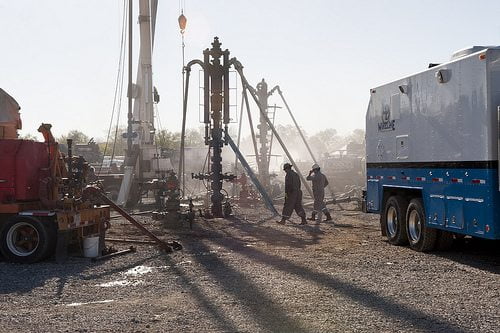

Environment
Study says US emitting more methane than government estimates
The US is emitting 50% more methane – an extremely potent greenhouse gas – than its government estimates, according to a new study.
The research, published on Monday in the journal Proceedings of the National Academy of Sciences, disputes estimates made by the US Environmental Protection Agency (EPA).
In April, the EPA said that methane emissions had been declining since the mid-1990s. However, the comprehensive new study – based on nearly 13,000 measurements – suggests that these claims are based on inaccurate measurements.
It says that in 2008, methane emissions – particularly caused by livestock and accidental leakages in oil and gas drilling operations in Texas, Kansas and Oklahoma – reached around 43m tonnes. That is 15m tonnes more than the EPA calculates.
“Something is very much off in the inventories”, said Anna Michalak, a co-author of the study. “The total US impact on the world’s energy budget is different than we thought, and it’s worse.”
As the study is based on readings from 2008, these revised figures don’t show the impact that the fracking boom may have also had on methane emissions, Michalak warned.
It is estimated that around two-thirds of global methane emissions come from manmade sources.
Though it remains in the atmosphere for a shorter period, methane produces around 21 times as much warming as CO2. Scientists have estimated that methane is responsible for 20% of the “enhanced greenhouse effect.”
A separate study published on Monday also warned that estimates of how much methane was being released by melting ice in the East Siberian Sea may be significantly off.
It suggested that as much as 18.7m tonnes of methane may be leaking into the atmosphere from the arctic shelf every year. These figures are around double the previous estimates.
Scientists have long expressed concern over the potential impacts of these stores of methane escaping at even faster rates as climate change causes permafrost to melt. It is feared that warming could cause a feedback loop – releasing methane that causes further warming which in turn releases more methane.
“We believe that release of methane from the Arctic, in particular, from the East Siberian Arctic Shelf, could impact the entire globe, not just the Arctic alone”, Natalia Shakova, lead author of the study and a biogeochemist at the University of Alaska told LiveScience.
Further reading:
Delaying emission cuts could cause widespread damage
Arctic methane releases double previous estimates
Study argues 90 firms to blame for 63% of manmade emissions
Poll says US public want action on climate change and more renewables






























